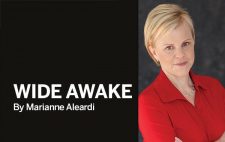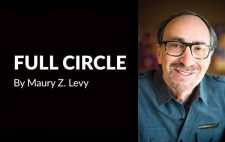Photos By David Michael Howarth at Capital Grille
Presented by
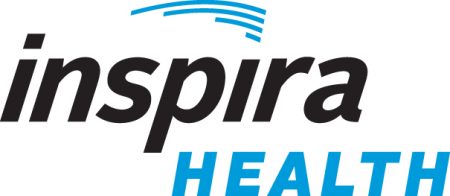
It was an intimate dinner with a small number of guests: the 5 CEOs of our area hospitals. And yet the table was soon overflowing with the powerful thoughts of those leading our healthcare systems. While perhaps perceived as distinct competitors, these exceptional leaders joined together to honestly discuss the issues they face while trying to serve the complex health needs of South Jersey residents. By night’s end, it was clear this is a group of exceptional men who respect each other, who consider each other friends, and who are fiercely united by the very challenging goal of improving our community’s health.

John DiAngelo President/CEO, Inspira

Joe Devine President/CEO, Jefferson Health NJ

Dennis Pullin President/CEO, Virtua

Anthony Mazzarelli, MD Co-President/CEO, Cooper University Health Care

Kevin O’Dowd Co-President/CEO, Cooper University Health Care
On addressing the social issues of their communities…
Ten years ago, if you told me I was going to be in the housing business, I would have said you’re out of your mind. But we learned if people have a house, they are healthier, so we all participate in a mental health collaboration, where we provide housing for people. I guess we’re up to housing about 70 people now. One of the recipients was asked what the most important thing was for him in his new home, and he said controlling the light switch. He said if he’s on the street, there’s no light switch. If he’s in the shelter, he can’t control the switch there. But in the house we were able to provide for him, he controlled the light switch.
John DiAngelo
One of the things that troubles me is how sad it is when your zip code becomes a predictor of your health and your health status. When you talk about people who live in Camden compared to people in Cherry Hill, there’s something like a 14-year difference in life expectancy. That’s a scary thought.
Dennis Pullin
When a person leaves our hospital, let’s say they had an addiction problem or some other crisis, there is not enough community outreach groups to take care of them. We have to start thinking about how we bring social organizations together to help solve these issues, and I think if everybody sits at the table to work together, we can help.
Joe Devine
We have a relationship with a renaissance school in the city of Camden. Right before the new facility was launched, we were asked by parents if we’d be using bullet-proof glass. We realized then there is a different perspective for someone who is living in an area with a certain zip code. They have a daily stress I could never imagine. That stress gets carried around in these communities, day in, day out.
Kevin O’Dowd
On reaching people before they get sick…
We had a patient who kept falling, and we couldn’t figure out what was going on. We discovered he had a walker – and shag rugs. So we put in new rugs, and the patient never fell again. Before, the guy falls, he comes to the hospital, we take care of him, we discharge him. That’s what we did. Now we think differently. Now we take action to keep the patient from getting to the point where he has to come to the hospital.
John DiAngelo
Think about it, in school we teach mathematics, we teach English, we teach composition, we teach everything we need to do for people to be literate in those fields, but we don’t teach about their health. We can make a big impact if we start early.
Joe Devine
We started recycling in my house when my daughter was in the third or fourth grade. She came home and just slammed myself and my wife because we weren’t recycling, and we were going to ruin the world and she was not going to have a healthy planet. We started recycling that day. Imagine if we could influence kids about health habits, then maybe they would be able to influence the habits of their parents. Because kids change our habits.
Dennis Pullin
On how technology is changing healthcare…
It’s not so much about brick and mortar anymore. We have to learn how we can get care closer to home, and when I say closer to home, I mean in the home. That’s done through e-visits and telemedicine. So if you’re sick, say you have a cold, you can pull out your phone and in two minutes have a physician on the other end. Your entire visit could take place via a smart phone.
Dennis Pullin
We’re looking at technology where a physician will visit with a patient, and there will be no chart. There will be microphones in the ceiling, and artificial intelligence will be listening and will write the doctor’s notes. If the doctor says we’re going to order some tests, the system knows to put those orders in. The physician can then come out of the room and review the notes that were made based on that conversation. The technology allows providers to reconnect with patients more, and that human connection is what matters.
Anthony Mazzarelli
We’re using virtual reality for pain management. We can ask, “What travel destination is on your bucket list?” And a patient may say they’ve always wanted to go to Tahiti. Well, they can put on virtual reality goggles and go to Tahiti, and if they’re having chemotherapy or if they have chronic pain, this can lower their pain.
John DiAngelo
My daughter just had a baby recently, and through her entire pregnancy, everything was on an app we created at Jefferson. It followed her through everything, even her ultrasound images were on there. To her, it was a way to manage her care. That’s what she wanted, and honestly, it was very effective for her.
Joe Devine
 On health care costs…
On health care costs…
Health costs for a family of four have eclipsed $20,000 a year – from a national average perspective – and that’s going up each year. Over the last five to seven years, we’ve seen the share the employee takes on double. We can talk a lot about why that is and what drives that number, but every two weeks that money is coming out of your paycheck, and that’s before you even access services. That’s something people should be focused on and are focused on. Something needs to change, because that rate of growth is unsustainable.
Kevin O’Dowd
Studies show that when patients feel their primary care physician is engaged, informed and involved, those physicians order less tests, they refer less to specialists, their patients are hospitalized less, and their total cost of care is less at the end of the year. If you truly engage patients, you actually lower costs.
Anthony Mazzarelli
On all the mergers…
A lot of what set off merger mania was the Affordable Care Act and looking differently at how the health system would be paid. If health systems were going to be paid based on covered lives, there was a mindset that bigger is better. If one part of the population is sicker and requires more care, that could be balanced with a population that’s not as sick. A lot of these mergers that have been studied really haven’t seen the economies of scale they thought they would. They haven’t seen the expense reduction they targeted. So from my perspective, the jury is still out on what the overall impact is.
Kevin O’Dowd
At Virtua, part of the reason we acquired a large health system is because we felt there were truly some complementary services there. Sometimes it’s not only about size and scale, it can be about synergies. It can be about your desire to create a comprehensive integrated network.
Dennis Pullin
On the South Jersey Behavioral Health collaborative…
Five CEOs sat together about six years ago, and we formed the South Jersey Behavioral Health Collaborative. The biggest need in our market was – and is – the need for behavioral health services. About 20-25 percent of our patients have either a primary or secondary diagnosis of a mental health issue. We have a responsibility to help improve that. Working together, we’re trying to figure out how we can impact change in that area. We got off to a good start. We put money behind it. We still have more to do, but at least we started to identify this was something that is important.
Joe Devine
There were people who would come to Inspira, then they would go to Cooper, then Virtua and then Jefferson – they knew how to play the system. We had no way of tracking that individual through all of our hospitals, but we now do. We know how to get them into treatment, so they don’t fall through the cracks. When we formed the behavioral health collaborative, we basically said, “Ok, what’s the best way for us to be able to take care of these people?” Because once they go through their in-patient treatment, there’s nowhere for them to get outpatient treatment. So all of our mental health folks are working together to figure out how we can do that. It’s actually worked out well.
John DiAngelo
We also all participate in supporting the Cherry Hill Free Clinic, which is a clinic sponsored by volunteer physicians and nurses and other practitioners. We all support it financially, and we encourage many of our clinicians to take part. It’s a clinic that’s held on the weekends at no cost to any patients.
Dennis Pullin
On healthcare competition…
I’ll see patients in the emergency department and sometimes they’ll say, “Well, I usually go to Virtua.” And they say it like they don’t want to tell me. I’ll say, “Well, Virtua is a great health system. When I did my residency at Cooper, we spent several months in the emergency department there. I learned medicine there.” We definitely compete, but we also share a lot of things as well.
Anthony Mazzarelli
What you see at this table – the interaction, the friendliness – you also see in the world we operate in, from a business perspective. When I first relocated to the region from D.C., the very first call that I received was from Joe Devine, welcoming me to the community. John reached out and invited me to lunch. Kevin and Anthony weren’t in their current positions yet. Many people may not be aware of the relationships we have, but we’re all trying to improve the overall health and well-being of the communities we serve. We may sometimes go at it in different ways, but we’re all still trying to accomplish the same thing.
Dennis Pullin
We have healthy competition where appropriate, and that’s good for the consumer. But it’s all done with a focus on how we can serve our communities, and it’s done with a genuine like and affection toward one another.
Kevin O’Dowd
On the opioid crisis…
We came across a drug deactivation program which has bags you can put drugs in, add water, and it deactivates the potency of the drugs. We’ve given out about 35,000 of those. We also just opened an inpatient detox unit. I know personally people who have either lost a child or lost a brother or a sister to the opioid crisis. Zip codes don’t matter, this is affecting everybody. We’ve got to do whatever we possibly can to try to help.
John DiAngelo
We’re the second hospital in the country where 100% of our emergency room physicians are what’s called X-waivered, which means we can prescribe Suboxone in the ER. So when patients come in and they’ve overdosed, or if they use heroin, we can actually start them on Suboxone right there in the emergency department, and then we schedule their follow-up appointments. They can’t overdose for 24 hours once they take that Suboxone. That physically can’t happen. So we’re starting them on treatment right away. It’s very unique.
Anthony Mazzarelli
What is shocking to me is any physician or advanced practice provider can sign up for a DEA number to give out opioids. You just pay your money, and you get that. But it’s 10 times harder to treat opioid addiction, because you have to go through eight hours of training to prescribe Suboxone, or 24 hours of training if you’re an advanced practice provider. So it’s much harder to treat opioid addiction than it is to create an opioid addict. Those are the kind of things we’re trying to tackle.
Anthony Mazzarelli
 On their economic impact…
On their economic impact…
We’re usually the largest employer, and we bring billions of dollars into the community. It’s impactful. Not only are we having an influence on the health of the community, but also on the overall well-being of the community because of the economic growth and stimulus we provide. I don’t think there’s another industry in this area that has a greater impact on the community than we do.
Dennis Pullin
We’ve taken action to really drive change, especially in the way of income and equality. We’ve all moved to $15 an hour as a minimum wage. Think about the domino effect that has throughout the marketplace. That’s using our position as the largest employers in the community to drive an equitable change that has direct benefit to the folks who work at our various organizations, but also to the communities and industries beyond that as well.
Kevin O’Dowd
On what they like about their jobs…
Every other week at our new orientation, I say, “You’ve chosen to be in a field that takes care of people. You have three responsibilities each day: Did you make an impact for a patient? Did you make an impact for one of your colleagues? Did you make an impact for you? Most of the times you’re going to say yes. And even on those days when you don’t think so, you’re going to dig deep and say, “You know what, I did do that.”
Joe Devine
99.9% of people choose this profession because they want to help. When you can go into your community and say, “It’s our job to help you, how can we do that?” that makes you feel good. When you go home and think about what you were able to achieve – that’s why you do this work.
John DiAngelo
We see people at their very worst. And to have a part in changing that – it’s pretty intoxicating. It’s also part of who we all are. Every one of us has this innate desire to be change agents and to really influence whole communities.
Dennis Pullin
You’re riding the elevator with a family that’s about to go into a same-day surgery unit, and you see the nerves and the anxiety. You’re walking down the hallway with someone who is clearly distracted because they’re dealing with a lot, and they don’t even know where the parking garage is or where to get coffee. Being able to stop and walk with them, talk with them, and help them calm down and relax and get to where they’re going is just – it’s an incredible honor that we get to do that.
Kevin O’Dowd
I’m aware the people who clean patient rooms could clean rooms for any company. But when they clean rooms for a healthcare system, they’re the front lines to stopping infection. They’re saving lives. There’s a purpose to what everyone does in a healthcare organization.
Anthony Mazzarelli


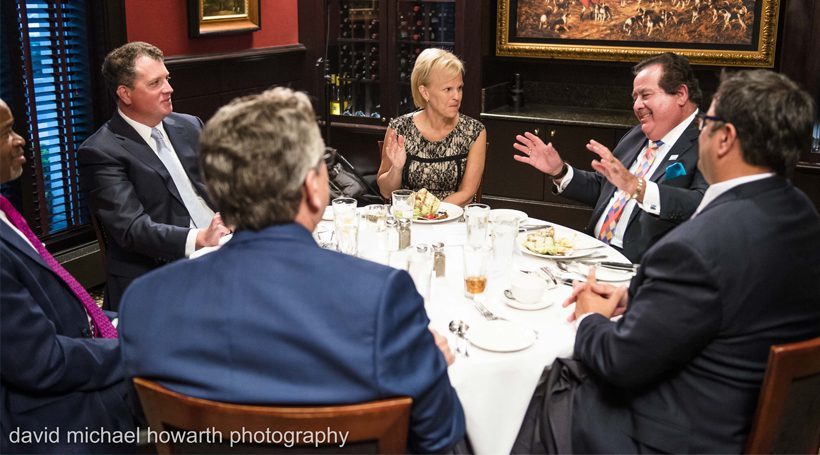
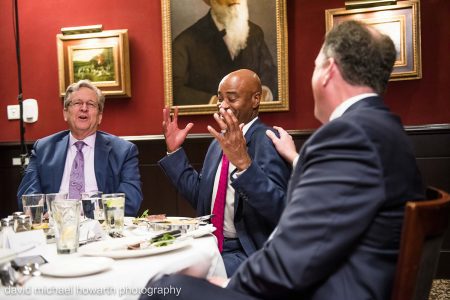 On health care costs…
On health care costs…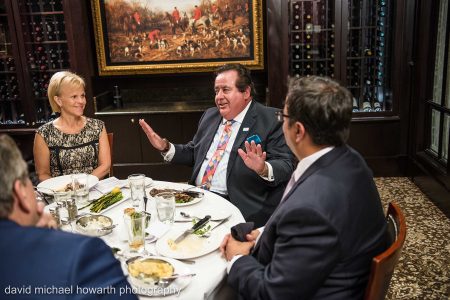 On their economic impact…
On their economic impact…

